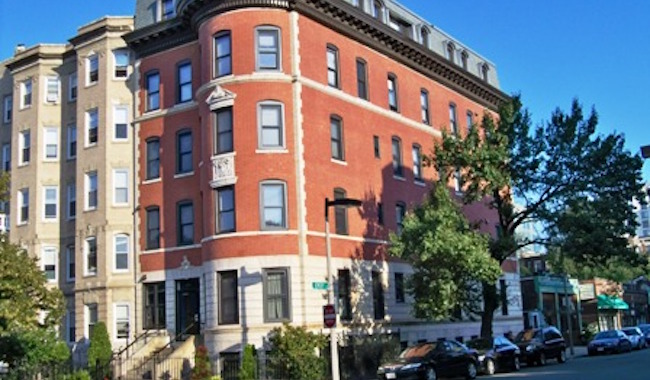
The following first appeared in the February 2018 edition of The Provider:
Imagine waking up one day with nothing except a change of clothes, and no money in your pocket. You go to apply for a job, but can’t because you don’t have a driver’s license, photo ID, or even a Social Security card. You head to the Registry of Motor Vehicles to get an ID, but can’t because you don’t have the money to pay for it and you don’t have a fixed address. You’ve struggled with a substance abuse problem for years, and have no idea where to turn for help.
Less than one day into your new life and it seems that every door is closed to you. You’re lost.
The vast majority of people in jail or prison will someday be released into the community, and as it stands today, too many of them are released without any supports and end up getting back in trouble. Roughly 3,000 men and women return to our neighborhoods from Massachusetts prisons each year. Community-based reentry services that provide the building blocks for a new life outside prison walls are the best deterrent to re-criminalization, but the availability of these programs and resources have been cut almost to the point of not existing anymore in Massachusetts. We need to change that trend.
In the last 18 months, four programs that provided community-based reentry services have either closed or been significantly scaled back due to loss of funding.
We know that these programs change lives and make communities safer. Brooke House, one of Community Resources for Justice’s residential reentry programs, is now in jeopardy. A snapshot of progress between March and August of 2017 shows 85 percent of individuals who entered the program completed it, and 93 percent of those who finished transitioned into safe, stable housing. In August, 90 percent of residents in the program were employed, setting them up to have a job and steady income after completing the program.
Individuals who participated in intensive pre- and post-release case management through the Worcester Initiative for Supported Reentry, operated by Advocates, Inc., saw similar benefits. Participation in the program reduced recidivism by 47 percent compared to the project’s Superior Court Probation control group Among the 152 participants in the program from 2012 through 2016, all were housed within one day of release, 62 percent were employed after their release, and of those, 71 percent were continuously employed for a year or longer.
Resources like Brooke House and the WISR program provide housing, case management, and accountability as individuals transition from the highly regulated life in prison to the world outside. By providing connections to housing and employment for people who often have difficulty accessing them, we can strengthen our communities and make them safer for all of us.
Community-based residential reentry programs depend primarily on federal grants and charitable donations, which can disappear almost overnight. Unlike many other states, Massachusetts has not invested in residential reentry supports. The Commonwealth’s $40 billion state budget includes just $90,000 for community-based residential reentry, all of which goes to one program in Worcester County. That’s roughly the same amount it costs to incarcerate two people in state prison for a year.
Massachusetts is on the cusp of enacting long overdue criminal justice reform legislation, but none of the bills currently being considered on Beacon Hill provide any additional funding for community-based residential reentry. More than one-third of all individuals released from state prison or county jail facilities in 2014 received no post-release supervision in the community or case management.
That puts our state well behind others that have embraced community-based residential reentry, including Michigan ($13 million allocated in 2016), Ohio ($66 million allocated in 2017), and New Jersey (2,600 residential reentry beds). The federal prison system releases 75 percent of individuals to residential reentry programs in the community.
Reentry services provided inside prison walls are a great start, but they simply aren’t enough. Support, guidance, and accountability when someone is in the community, facing the stresses of starting a new life is where the rubber meets the road, and it’s where our emphasis needs to be. A line item in the state budget dedicated to funding community-based residential reentry programs is long overdue. Inclusion of $5 million would allow 450 individuals to start their reintegration with a fair shot: a bed to sleep in and help getting a job, health care, counseling, and an ID.
If we’re serious in Massachusetts about criminal justice reform, we need to make sure more men and women who’ve served their time in prison get the support they need to never go back. Please join us in supporting a real investment in community-based residential reentry.
John J. Larivee is President & CEO of Community Resources for Justice. Diane Gould, LICSW, is President and CEO of Advocates, Inc.